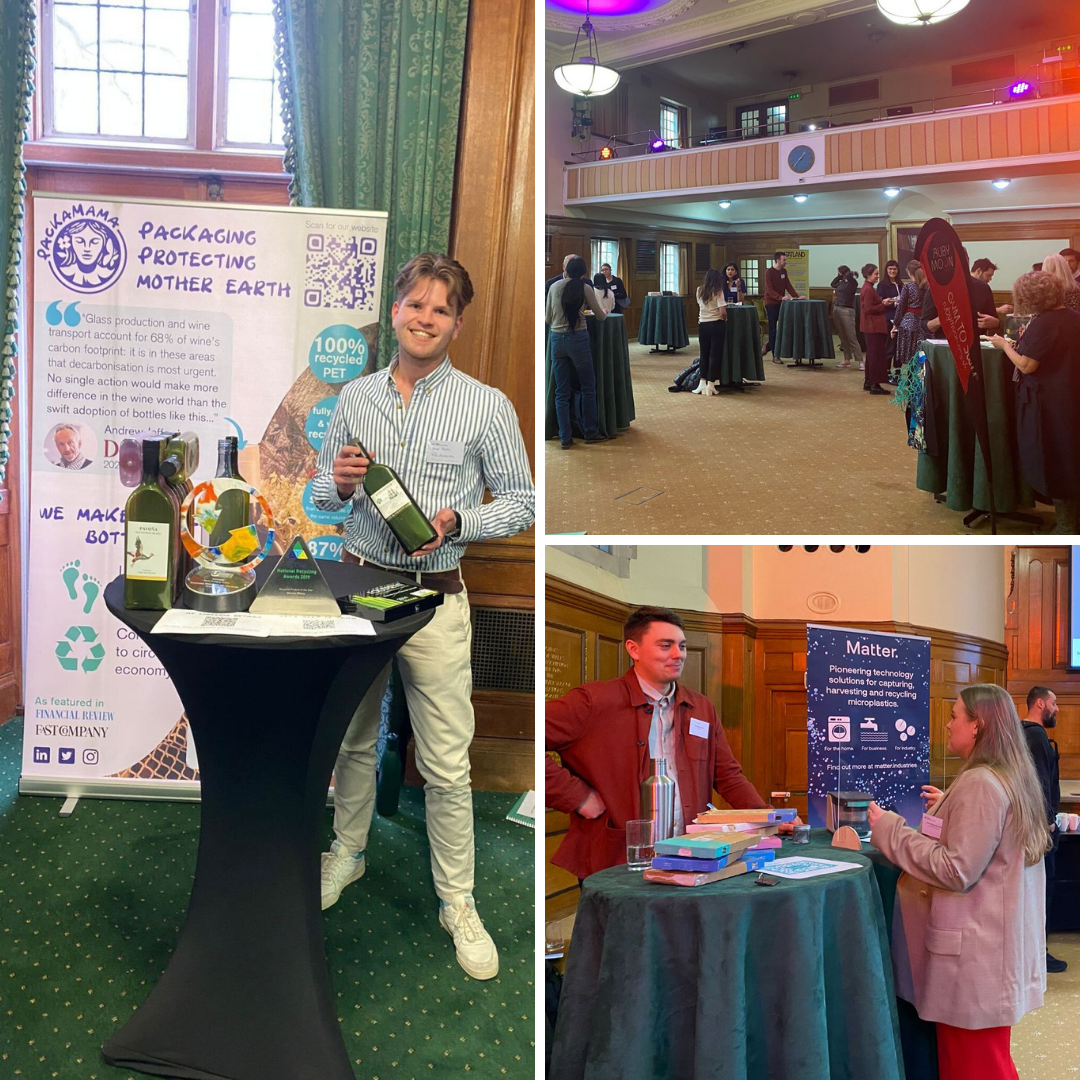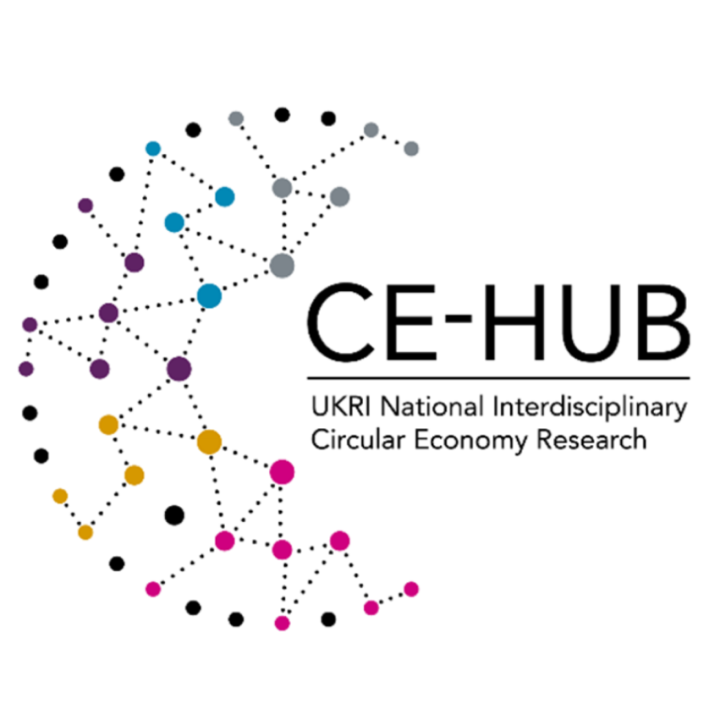2016, Ceschin & Gaziulusoy
NICER Case Study: SME Engagement
2022, CE-Hub Team
Approach, activities & rationale
Small and medium sized enterprises (SMEs) make up 99% of all businesses in the UK and employ 85% of the workforce. They are a source of innovation, support local economic resilience and are an essential part of many key UK and global supply chains. Our work to engage SMEs is not only helping us to achieve all three of the CE-Hub objectives but also helps us to embed NICER research with key stakeholders.
Leading Change: Raising awareness of SME activity in CE
On 2nd March the CE-Hub hosted the Circular Economy Showcase in Westminster, London. A major feature of this event was to showcase 16 innovative SMEs demonstrating CE implementation strategies including diversity in product design, business model innovation and enabling technologies. Each SME was able to pitch their business to the diverse audience during ‘lightning round’ sessions as a part of the main event schedule. To facilitate learning and knowledge exchange, we produced short filmed interviews with each SME explaining how they got started, their biggest challenges, their successes and their key learning from implementing CE in practice. As a result of this activity the CE-Hub was approached by Amazon and eBay keen to invest in these companies and promote their products via their global platform. We are using the films to promote awareness of how SMEs can apply CE principles and business models in practise to inspire others and inform policy makers.

Knowledge Exchange: Understanding Barriers and Enablers to Implementation
Our research and experience have indicated that SMEs would like to make the shift to CE but often face significant barriers to implementation. Dr Lucy Chamberlin (CE-Hub PDRF) has mapped out the most common barriers to adopting CE, through an analysis of academic and grey literature, two SME focused workshops with over 200 SMEs and an SME questionnaire. The most common and significant barriers to initiating CE, are: economic / market, policy / regulatory, social / cultural, technology / design and operational. Lucy found that common themes included a lack of finance and investment in CE solutions, a lack of regulatory and political support and infrastructure to support the transition to CE, many actors being stuck in the ‘linear’ status quo, and businesses constrained by uncertainty over reverse supply chains, return on investment and customer appetite. The findings of the research will be shared across the community via the CE-Hub Knowledge Platform and will inform targeted CE-Hub interventions, future events and roundtable discussions.
Building Capacity
In response to the demand for new knowledge and capability amongst SMEs transitioning towards a CE, the CE-Hub has designed a new 4 week on-line course Circular Economy Implementation for Smaller Businesses, building on the success of our long standing Masterclass in collaboration with the Ellen MacArthur Foundation. Launched in March 2022, the course has attracted 24 smaller business keen to develop knowledge and confidence to initiate or scale up CE value creation. The course is structured to provide academic theory, inspirational case studies, expert speakers and a series of team-led challenges designed to take each participant from idea to action plan. Currently in progress, the initial feedback from this first innovation cohort is positive with a high level of engagement on the course platform, as exemplified by one participants feedback:
“The different ideas across industries/sectors are so helpful. There is enormous value from cross-functional and cross-industry collaboration to make the circular economy a reality.”
Feedback from Course Participant
In addition to online courses, the CE-Hub is providing tailored 1-2-1 support and guidance to businesses as various stages of their transition towards a CE. Partnerships that have been developed over the last year as a result of CE-Hub activity and outreach include John Lewis Partnership, Philips, NHS, Amazon, Innovation Guelph, Capgemini, Institute of Directors Ireland and BAM Clothing.
Lessons Learnt and the Future
The activities detailed above have shown that, aside from CE focused start-ups, the majority of SMEs have little or no knowledge of CE or its application. Those SMEs that we have engaged with have confirmed the need for case studies, dedicated training, tools and resources and the opportunity to learn with and from others to facilitate action. The CE-Hub will therefore continue to engage with SMEs through a variety of outreach and knowledge building activities including webinars, workshops, the knowledge platform and training. We will also facilitate cross-value chain collaborations to amplify the voices of SMEs and connect SMEs with the wider business and policy community though a series of round table discussions in collaboration with the CE Centres and other networks such as the BEIS SME Climate Hub.
Further information
Keep up-to-date with our engagement with SMEs on the CE Hub website via our CE Stories and on the CE Hub Knowledge Hub.





